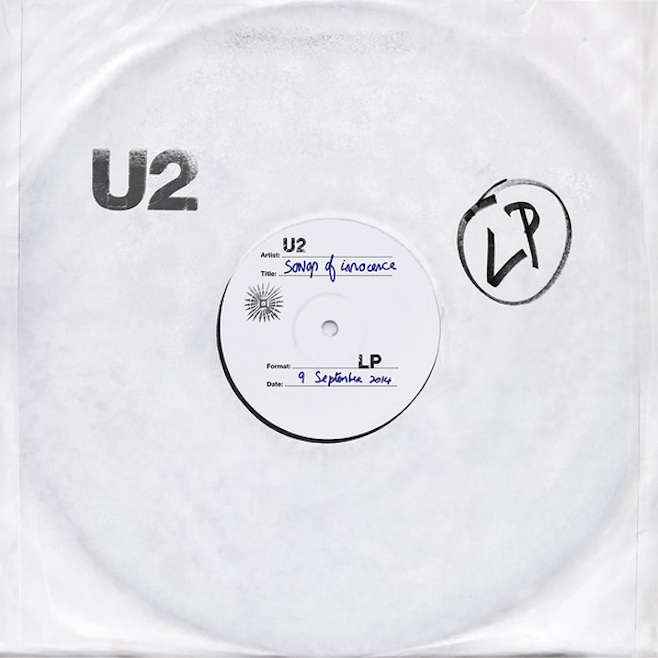
The biggest story of the week is Songs of Innocence, the U2 album available for free from iTunes. It's not, however, considered a big story for the right reasons.
Online, at least, furor has erupted over one aspect of its dissemination: if your iPod settings (which, of course, can be changed from the default by users) allow updates to automatically download, then Songs of Innocence ended up in your music collection even if you hate U2. And thus ensued the biggest outburst of butthurt since, well, whatever trivial perceived slight riled people the most last week. But since it's a music-related controversy, music snobbery -- the biggest motivator of absurdly overblown butthurtness known to mankind -- got mixed in, and any band that's been around for 38 years, as U2 has, and is as famous as U2 is, pretty much automatically attracts music-snob hatred. So the vituperation has flowed freely.
I'm enough of a fan that I have all their albums, but then, it's also my job to at least hear them all. But I'm not fanatic enough to have ever seen them in concert, and I don't love everything they've ever done (witness this review culturecatch.com/music/u2-no-line-on-the-horizon), so I think I can be a relatively unbiased observer. Verdict: enjoyable and intriguing, though not ranking among their best.
Perhaps predictably, it does not get off to a good start. Lyrically speaking, I empathize with the message of "The Miracle (of Joey Ramone)," which is nostalgia for the musical ferment of the mid-'70s and, more broadly, the moment when one is inspired to pursue a life goal more strongly by receiving some affirmation of one's direction. Alas, the music -- recurring wordless sing-along vocal hook, simplistic beat -- panders like a commercial (and I decided this before learning that this was the song they played at the iWatch release this week). I am reminded of how I still can't stand "Vertigo," the lead track of 2004's otherwise brilliant How to Dismantle an Atomic Bomb; at the time, I thought it was because it had been bombarding us in an iPod commercial for weeks before the album's release, but now I think it's just almost a parody of a U2 song.
From there on, though, aside from the similarly cheesy "California (There Is No End to Love)" and the emptily upbeat "Volcano," things get better. Generally, for the past decade and a half, U2 and in particular Bono have sounded best when communicating ruminative intimacy, usually at mid- or down-tempo (though louder anthemic refrains fit into some of the mid-tempo numbers, such as "Every Breaking Wave"), and that's what we mostly get on Songs of Innocence. It's true that often Bono's singing earnest homilies that are less profound than he thinks, often skirting cliché while doing so. So "Song for Someone" and "Iris (Hold Me Close)" are a bit awkward in the word department, but the gently pulsating music, swelling to balladic fervor, delivers the tender comfort that the words don't quite get across.
One of the aggressive (though it modulates its dynamics well) songs that does work is the anti-religion outburst "Raised by Wolves," in which Bono avers, "I don't believe anymore" -- because belief is too often used to justify hate and violence. This is one of the tracks where co-producer Danger Mouse may have shaped the music in ways not expected from U2. The biggest arranging surprises come in the second half: "Cedarwood Road," which includes a jagged electric guitar metal riff contrasted with a thrumming acoustic guitar; the following "Sleep Like a Baby Tonight" with its throbbing electro bass opening, rough guitar textures, synthesizer arpeggios, and the falsetto Bono flips into for the bridge; more synth in "This Is Where You Can Reach Me Now"; Lykke Li's cool guest vocal on "The Troubles." That these new ingredients are mixed with the more expected U2 style, and not really fully integrated, makes for more uneasy listening than the quartet has given us before, though nothing shocking outside of their own insular context.
This is a complex enough album that a final judgment after two days of listening is ill-advised, but whatever Songs of Innocence is, it's not a failure, not disappointing. Uneven, yes, but also stimulating in unexpected ways -- and after 15 years without an unexpected move, that's refreshing.
